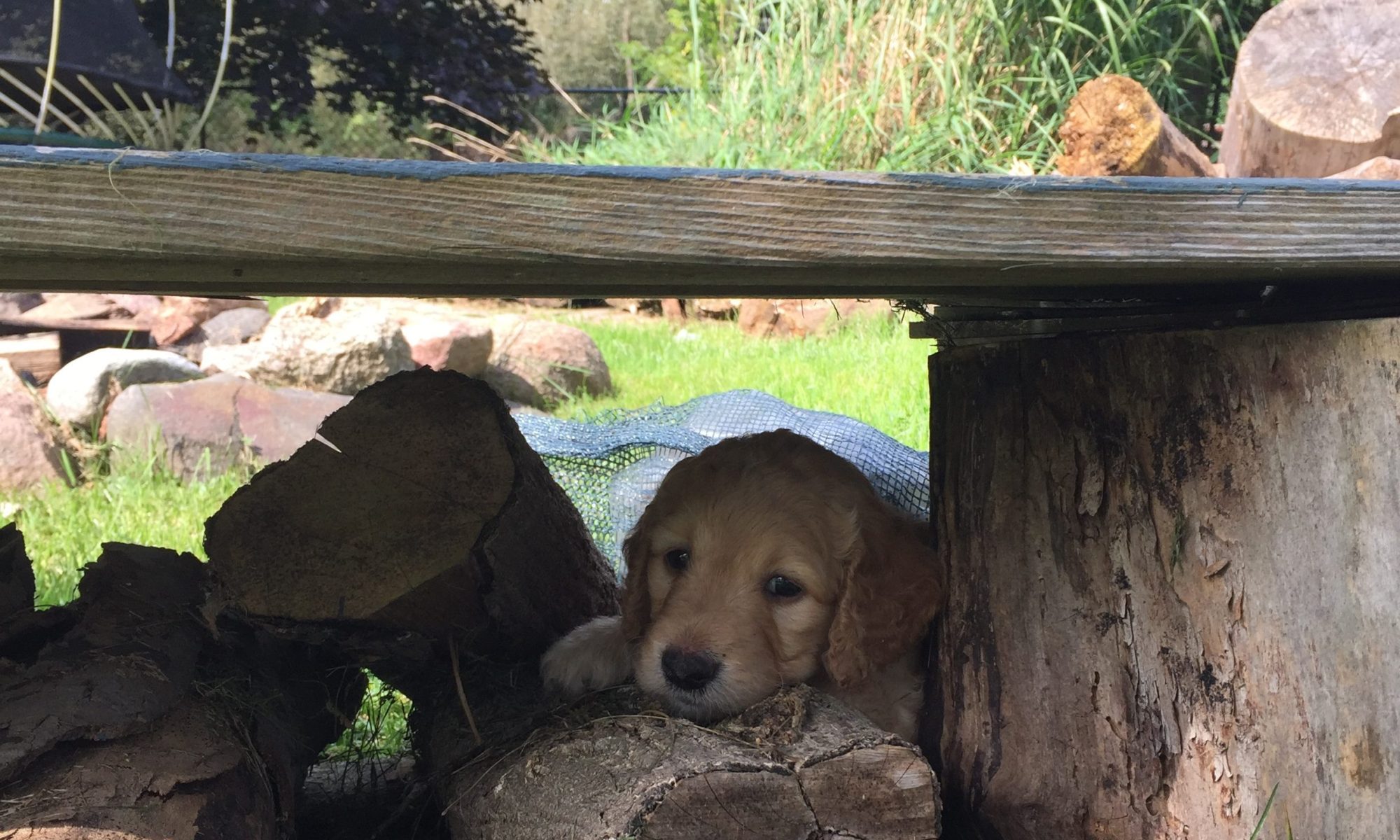
What is a Singleton Puppy
Singleton puppies are puppies that are born solo. They don’t have any brothers and sisters (littermates). A litter of one is not a very common occurrence, but it happens every now and then. This has never occurred in the past five years of our breeding. Believe it or not but, this may take more work on our part to raise a singleton puppy than a normal size litter.
As a breeder, I am always trying to improve through courses, research and new experiences. The past seven days have been a learning experience. Raising a litter of puppies I have done many times but a litter of one, I have only read about. Now that this is a reality, I have been doing in-depth study on the puppy raising process of a singleton. Below are some differences between raising a singleton litter and a average size litter.
Warmth
Newborn puppies cannot regulate their own body temperature. They rely on the Mama and littermates for warmth. Echo’s puppy lacks littermates to help keep her warm when mama is not in the whelping box so we added “sock buddies” to mimic littermates. They are socks filled with rice that can be heated in the microwave.


Feeding – Monitoring Puppy’s Food Intake
With an average size litter it is important that puppies gain weight daily. If this doesn’t happen, you have to start to worry and spend time making sure that the underweight puppy gets his fair share.
With a singleton litter weighting daily is also important but for a different reason. Gaining too much weight too quickly can cause problems. There is plenty of milk available and no competition from littermates. With this unlimited supply of milk the puppy can become too chubby which will make it more difficult for the puppy to support her weight as she grows.

Echo’s puppy is my chunky monkey. She doubled her birth weight on day six – two days earlier than the record from my previous litters of day eight. So, the past few days have been spent by the whelping box limiting the puppy’s nursing time. It has helped slow the puppy’s weight gain some. This will be something that I will continue to do.
Exercise
Exercise is an important part of puppy development. Newborn puppies crawl on their tummy pulling with their front legs and pushing with their back legs. As the days and weeks pass, their muscles become stronger and eventually they are strong enough to support their bodies by walking on all fours. Singleton puppies development is delayed as they do not get as much exercise as puppies with littermates.
Human Socialization
Handling puppies is something that we like to do from day one. Our puppies get lots of cuddles, love and attentions from young and old. Singleton litter or average size litters doesn’t matter – we love to cuddle puppies. Echo’s puppy may have a bonus in this area- one puppy and so many people to cuddle her 🤗









LOOKING AHEAD TO WEEK TWO
- Much the same as week one – Eat, Sleep, Repeat!
- Puppy will continue to grow
- Puppy still crawls; hind legs will become stronger
- Eyes should begin to open towards the end the week – so exciting !!!


